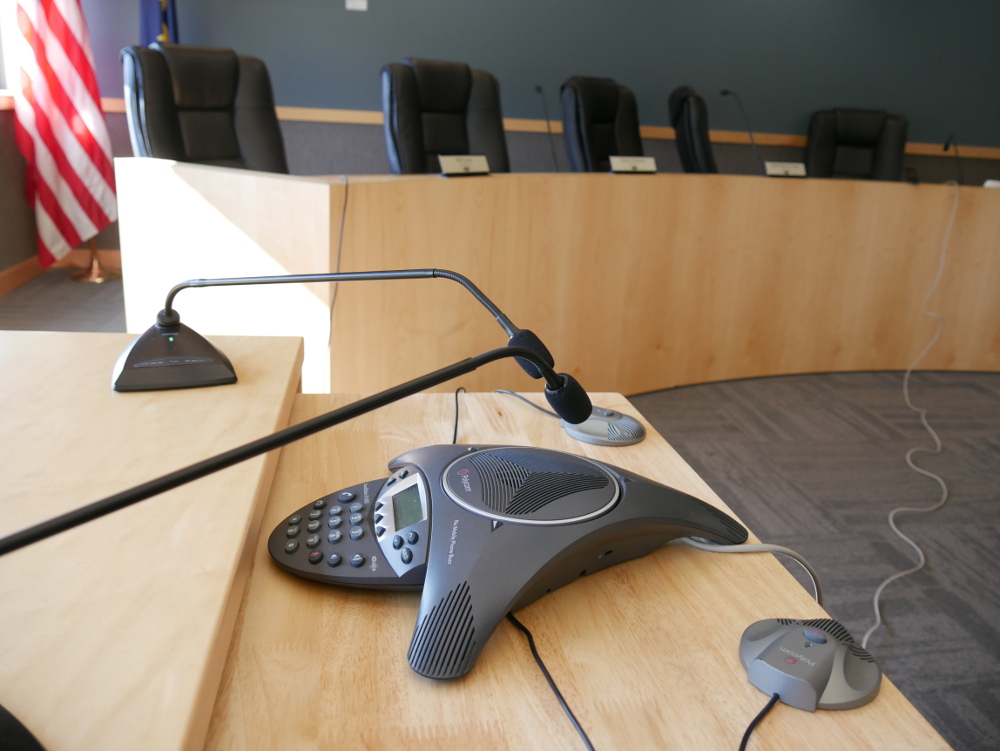
Petersburg voters will not get a chance to vote away their say in who and what is tax exempt. That’s after a ballot proposition that would have given the reins entirely over to the assembly failed at the July 1 Borough Assembly meeting.
The Borough Charter says that any change to Petersburg’s sales tax exemptions has to be ratified in three assembly votes — and then by voters in the municipal election. That’s different from how most municipalities across the state handle their sales tax exemptions.
Jodi Tow is Petersburg’s finance director. She’s advocated for taking away the extra step, saying that it would streamline the budgetary process.
“As [far] as we are aware, this is the only municipality that does this in Alaska,” Tow said at the Borough Assembly’s June 17 meeting. “It really ties the assembly’s hands on being able to do anything — to pivot quickly in case of state funding losses, like [with what] we’re seeing with the school district.”
There is a long list of people, entities, goods, and services that are exempt from the borough’s sales tax. It exempts local nonprofits and charity organizations. It also applies to fees for childcare and medical services, as well as any purchase made with food stamps. The list even covers caskets for funerals and pull-tab games for charity.
Prior to 1981, Petersburg’s assembly had the final word on any changes to sales tax exemptions. Then, the assembly decided to add an extra step: after they approve any change to the borough’s sales tax exemptions, they put it to a public vote — just as it would with any change to property tax exemptions.
Assembly member Tom Fine-Walsh said he felt like it was his responsibility to let the public decide if they want to continue to have a say in each and every potential change to sales tax exemptions. But, personally, he wants to bring Petersburg’s process in line with what the rest of the state does.
“I think a [previous] assembly made the decision previously to put us in this position,” said Fine-Walsh. “Now, we’re sort of having the opportunity to ask the community in its entirety if this is how we want to do things. I think we’ve made pretty compelling reasons for why this is not a very normal way to do things… We’re the only community that does this.”
The proposed change got unanimous support from the assembly in its first two meetings. But at the third meeting, Vice Mayor Donna Marsh balked. She said, over the last few weeks, public feedback changed her mind.
“People are rather unhappy with the idea of having their rights, if you will, curtailed on having a voice in taxation,” said Marsh. “The question has been: why is this even being put forth? Because to pass this would — in a sense — possibly limit the opportunity of the voting public to have a say.”
The other three assembly members in attendance — Thomas Fine-Walsh, Bob Lynn, and Jeigh Stanton Gregor — upheld their support for the measure.
But it failed. That was because it only had three “yes” votes, with Marsh voting “no.” Any ordinance or resolution that goes before the assembly needs a minimum of four votes to pass. Mayor Mark Jensen and assembly members Scott Newman and Rob Schwartz, who had previously supported the measure, were not in attendance at the final vote.
The ballot proposition will not go before Petersburg voters in the October election.











